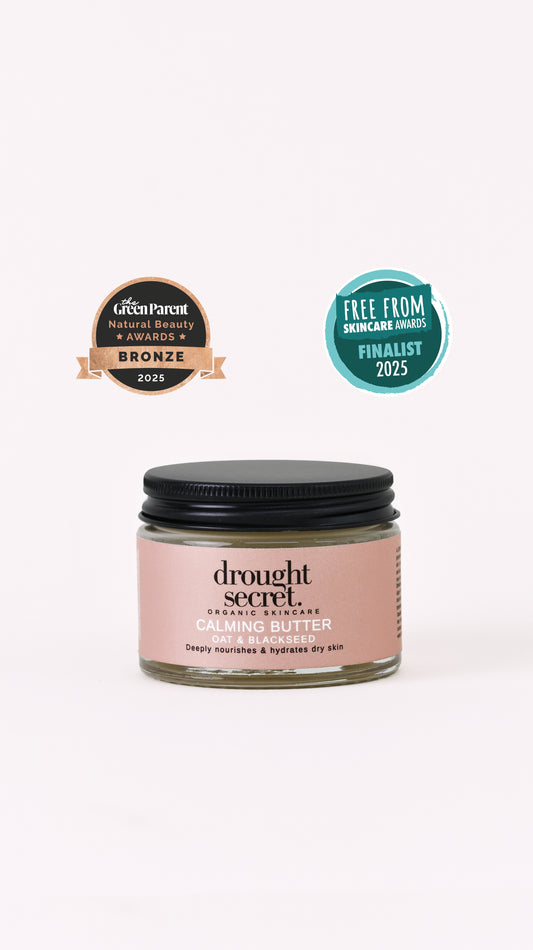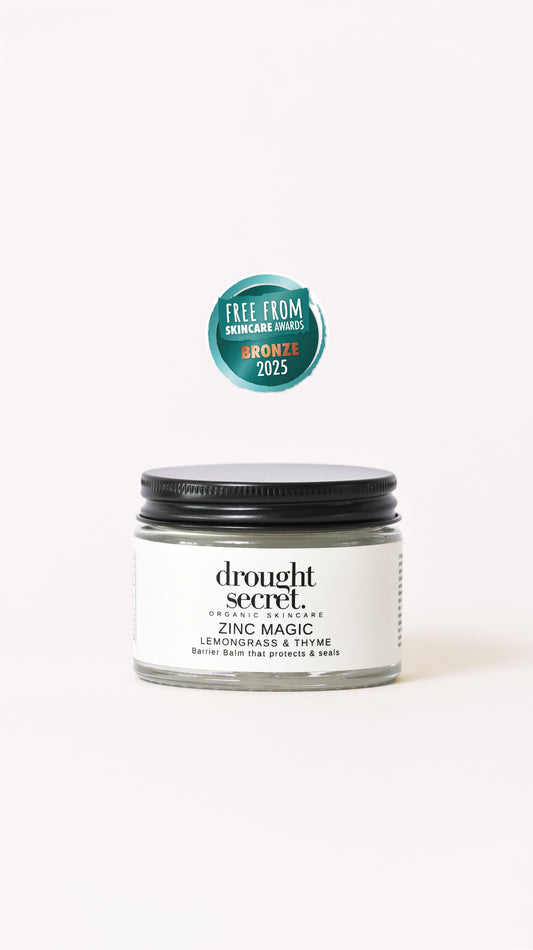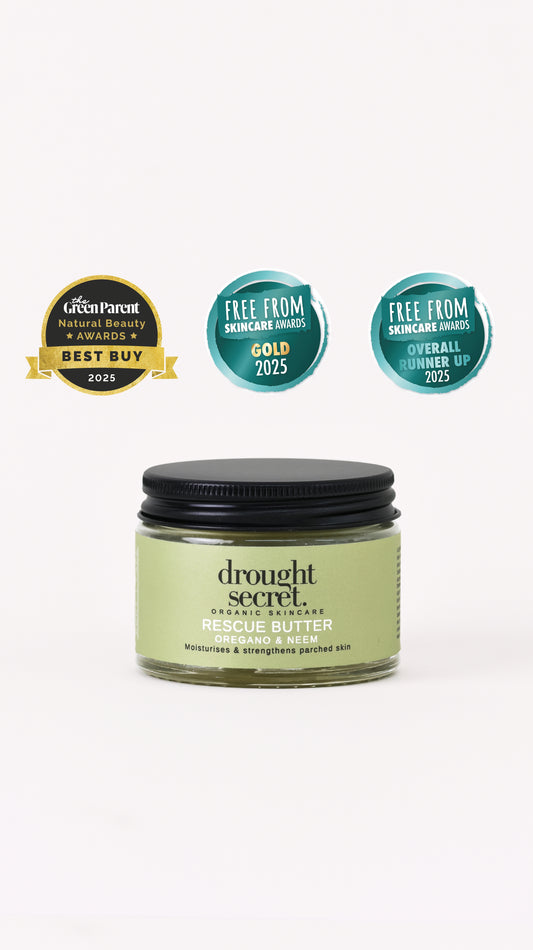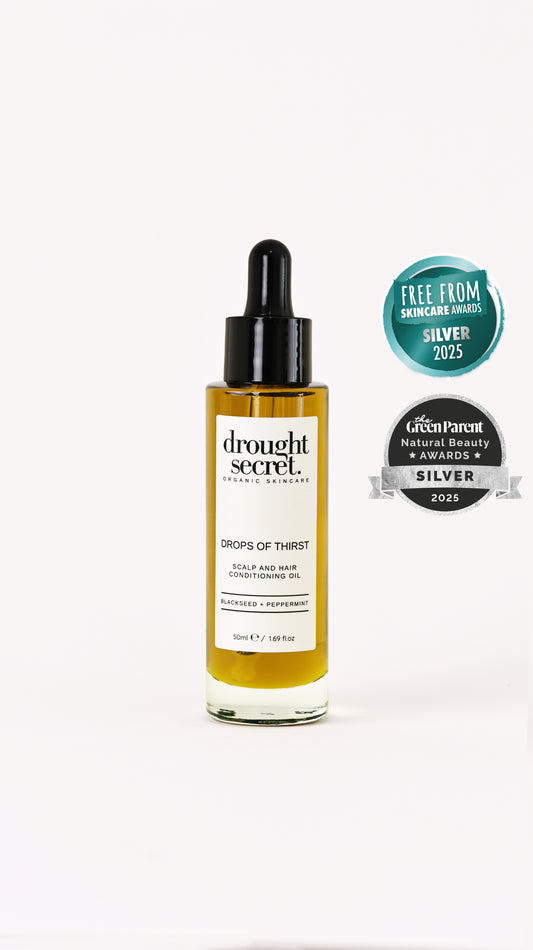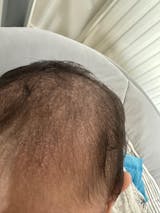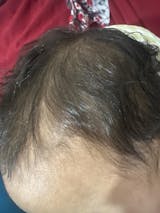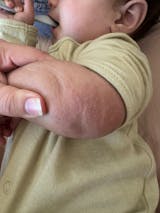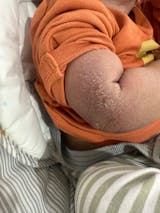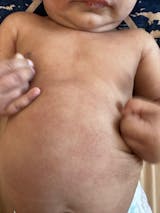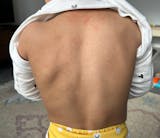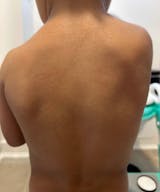Have you ever looked in the mirror, noticed red, irritated patches on your skin, and thought, “What is this? Eczema? Rosacea? Or both?” Well, you aren’t alone. Skin conditions like eczema and rosacea look frustratingly similar with redness, flakiness, itching, and sometimes even tiny bumps that make you feel self-conscious, and because these two skin problems share symptoms, it’s easy to confuse one for the other.
However, here’s the deal: eczema and rosacea are two completely different skin conditions with unique triggers, symptoms, and treatments. Understanding which one you have is the first step toward soothing your skin and restoring its natural glow. So, without further ado, let’s break down eczema vs rosacea for you, so you can spot the difference, understand what causes them, and finally know how to give your skin the care it’s been asking for.
Eczema V/S Rosacea: The Basics
Before we take a deep dive into symptoms and skincare routines, it’s crucial to know what each condition actually is.
Eczema (Atopic Dermatitis)
Primarily, eczema is an inflammatory skin condition that can appear anywhere on your body, ranging from your face and arms to your legs, and even behind your knees. The condition is often linked to an overactive immune system that reacts to irritants or allergens, and if you have eczema, your skin barrier is weaker, which makes it hard to retain moisture and protect you against bacteria or pollutants.
Rosacea
On the other hand, rosacea primarily affects the central face, like your cheeks, nose, forehead, and chin. It’s a chronic inflammatory condition that causes redness, visible blood vessels, and sometimes acne-like bumps.
Unlike eczema, rosacea doesn’t cause allergies, and in case you are wondering about eczema vs rosacea causes, rosacea is often triggered by things that make your blood vessels dilate, like spicy food, stress, hot drinks, alcohol, and temperature changes.
In short,
Eczema = dryness and itching
Rosacea = redness and flushing
Eczema vs Rosacea Symptoms: How to Tell Them Apart
To help you get a clear idea of eczema vs rosacea symptoms, here’s a simple comparison table to make things crystal clear:
|
Feature |
Eczema |
Rosacea |
|
Common areas |
Can appear anywhere (especially hands, elbows, knees, neck, and face) |
Usually affects the central face (cheeks, nose, forehead, chin) |
|
Skin appearance |
Dry, scaly, cracked skin |
Redness, visible blood vessels, flushing |
|
Itching |
Intense itching |
Mild to moderate itching or burning |
|
Triggers |
Allergens, harsh soaps, weather change, stress |
Hot drinks, alcohol, spicy foods, temperature, stress |
|
Age Group |
Common in children, but it also affects adults |
Typically begins in adulthood (30-50 years) |
|
Bumps/ Papules |
May appear as dry patches or blisters |
May have red bumps or pimples |
|
Chronic or Episodic |
Episodic (flare-ups |
Chronic (persistent redness and flare-ups) |
By now, you are probably starting to recognize which one sounds more like your skin condition, but remember, many people can have both eczema and rosacea at the same time, which is why accurate diagnosis from a dermatologist is crucial for eczema and rosacea treatment.
What Causes Eczema and Rosacea?
Most people end up searching: How to tell if you have eczema or rosacea because the symptoms are quite similar. And we are not denying that both conditions involve inflammation, but the why behind that inflammation is quite different.
Eczema Causes
- Genetics: If your parents have eczema, asthma, or allergies, you are more likely to have it too, so eczema is genetic.
- Weak Skin Barrier: If your skin loses moisture easily, irritants and bacteria can sneak in and make you more prone to eczema.
- Allergens and Irritants: Things like fragrance, wool, harsh soaps, or detergents can also trigger eczema flare-ups.
- Stress: Many people don’t know this, but emotional stress can worsen eczema symptoms.
- Climate: Dry air or extreme temperatures can cause eczema flare-ups, too.
Rosacea Causes
- Vascular Issues: Overactive blood vessels that dilate too easily can cause rosacea.
- Microorganisms: Tiny skin mites like Demodex and bacteria like H. pylori may also cause rosacea.
- Genetics: A family history of spicy foods, alcohol, caffeine, sun exposure, heat, and stress can also cause rosacea.
While you can’t change your genetics, you can identify and manage your triggers with proper eczema vs rosacea diagnosis, which brings us to the part you have been waiting for: treatment.
Eczema and Rosacea Treatment: What Really Works?
After understanding the problem, let’s talk about solutions with ways for treating eczema and rosacea naturally. Here is the right care routine for making eczema and rosacea absolutely manageable:
Eczema Treatment
Managing and reducing the symptoms of eczema is all about restoring your skin barrier and keeping it hydrated.
- Moisturize: Use a nutrient-rich calming butter balm multiple times a day, especially right after showering. Ingredients like ceramides, shea butter, and hyaluronic acid can help rebuild your skin’s moisture shield, so your skin stays hydrated.
- Avoid Triggers: Identify what sets your eczema off, like wool, fragrance, or stress, and avoid them as much as possible.
- Tropical Steroids or Calcineurin Inhibitors: These are prescribed for flare-ups to calm inflammation and reduce itching in case of eczema.
- Oral Treatments and Light Therapy: In severe cases, your dermatologist might also recommend antihistamines, immunosuppressants, or phototherapy.
- Gentle Cleansing: Stick to mild, pH-balanced cleansers instead of harsh soaps, if you don’t want to make your eczema worse.
- Diet and Lifestyle: Anti-inflammatory foods like omega-3 fatty acids (found in salmon, flaxseeds, walnuts) may also help, and yes, managing stress also makes a massive difference.
Rosacea Treatment
Unlike eczema, for rosacea, the goal is to reduce redness and control flare-ups. To manage rosacea:
- Identify and Avoid Triggers: Keep a diary of what makes your skin flare up, like hot drinks, spicy food, stress, or sun exposure, and try to minimize them.
- Gentle Skincare Routine: If you have rosacea, always follow a skincare routine for sensitive skin. Use fragrance-free, alcohol-free cleansers and moisturizers, and avoid scrubbing your face.
- Topical Medications: Dermatologists also prescribe Metronidazole or Azelaic Acid to reduce inflammation and redness, and Brimonidine Gel to temporarily constrict blood vessels and reduce flushing.
- Oral antibiotics: For moderate to severe rosacea, oral antibiotics like doxycycline can help control inflammation.
- Laser and Light Therapy: These treatments can target visible blood vessels and reduce redness effectively.
- SPF is Non-Negotiable: Daily sunscreen is a must if you have a condition like rosacea. Rosacea-prone skin is highly sensitive to UV rays, so use mineral sunscreens with zinc oxide or titanium oxide.
Skincare Tips if You Have Either (or Both)
Here’s the trickiest part: some people actually have both eczema and rosacea, which makes skincare extra challenging. However, don’t worry because these universal tips will help soothe your skin and keep flare-ups at bay:
- Patch test new products before you apply them to your face.
- Avoid hot showers; instead, go for warm water, which is gentler on sensitive skin.
- Simplify your routine because the fewer ingredients you choose, the better results you get.
- Avoid alcohol, menthol, or fragrance in skincare products.
- Stay consistent because switching products too often can make things worse.
Believe us when we say this: your skin doesn’t need complicated treatments; it needs kindness and consistency.
Conclusion
Eczema and rosacea may seem similar on the surface, but understanding their differences can truly transform how you care for your skin. So, when you learn to listen to what your skin is really asking for (e.g., hydration, gentleness, or a break from triggers), you will start to see fewer flare-ups and more good-skin days.
Is your skin sending you distress signals lately? Don’t panic, and go for eczema-friendly skincare products from the Dought Secret today! And remember, healing doesn’t happen overnight, but with the right approach, your skin will thank you!

